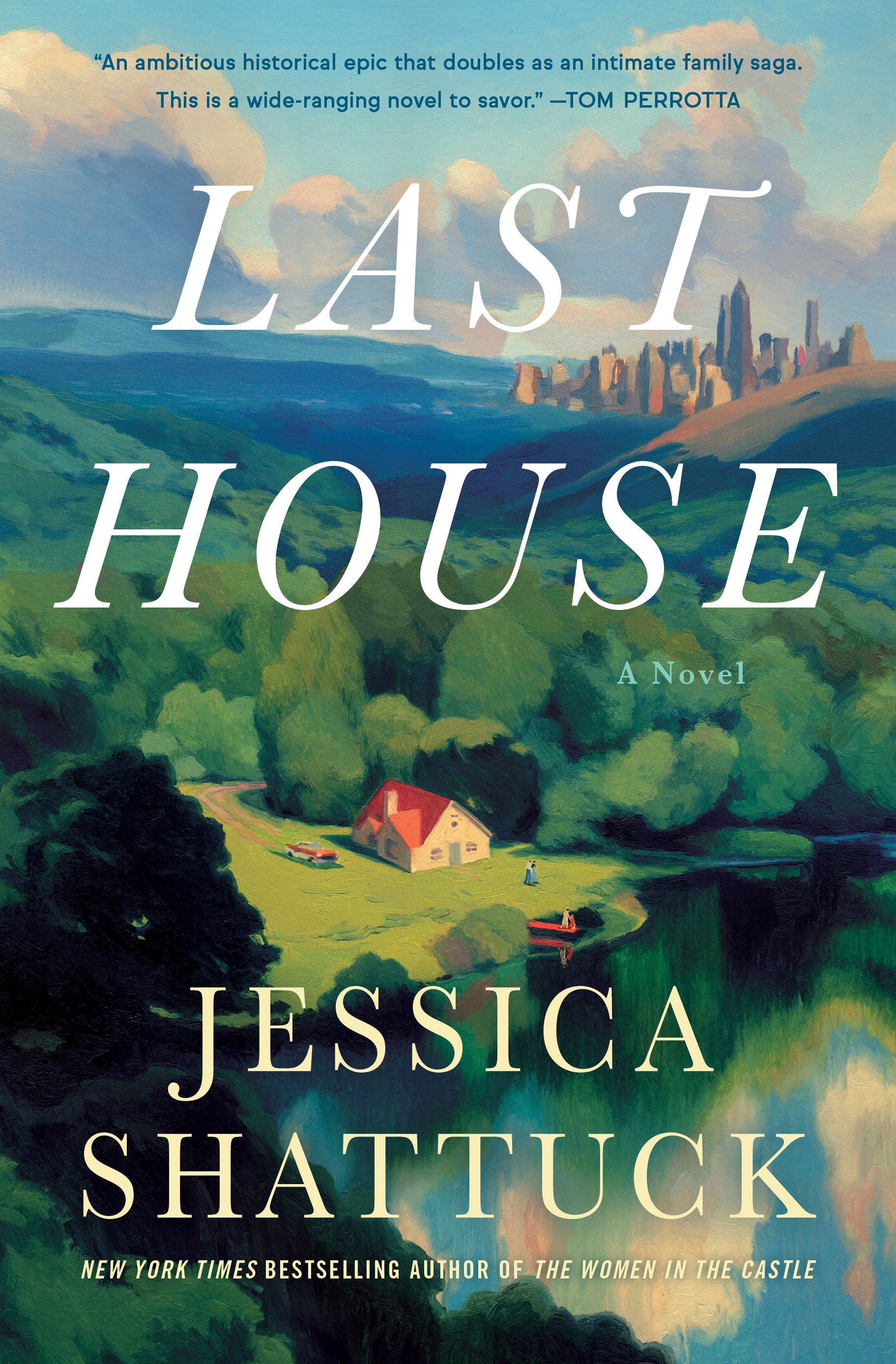From the New York Times bestselling author of The Women in the Castle comes a sweeping story of a nation on the rise, and one family’s deeply complicated relationship to the resource that built their fortune and fueled their greatest tragedy, perfect for fans of The Dutch House and Great Circle.
It’s 1953, and for Nick Taylor, WWII veteran turned company lawyer, oil is the key to the future. He takes the train into the city for work and returns to the peaceful streets of the suburbs and to his wife, Bet, former codebreaker now housewife, and their two children, Katherine and Harry. Nick comes from humble origins but thanks to his work for American Oil, he can provide every comfort for his family, including Last House, a secluded country escape. Deep in the Vermont mountains, the Taylors are free from the stresses of modern life. Bet doesn’t have to worry about the Russian H-bombs that haunt her dreams, and the children roam free in the woods. Last House is a place that could survive the end of the world.
It’s 1968, and America is on the brink of change. Protestors fill the streets to challenge everything from the Vietnam War to racism in the wake of MLK’s shooting—to the country's reliance on Big Oil. As Katherine makes her first forays into adult life, she’s caught up in the current of the time and struggles to reconcile her ideals with the stable and privileged childhood her Greatest Generation parents worked so hard to provide. But when the Movement shifts in a more radical direction, each member of the Taylor family will be forced to reckon with the consequences of the choices they’ve made for the causes they believed in.
Spanning multiple generations and nearly eighty years, Last House tells the story of one American family during an age of grand ideals and even greater downfalls. Set against the backdrop of our nation’s history, this is an emotional tour de force that digs deeply into questions of inheritance and what we owe each other—and captures to stunning effect the gravity of time, the double edge of progress, and the hubris of empire.
PRE-ORDER
Amazon | Barnes & Noble | Bookshop
Praise for Last House
“Ambitious in its historical sweep yet intimate in its portrayal of a family's trials, Jessica Shattuck's moving new novel brings to life the '50s and '60s in America in such a way that we feel powerfully their contemporary relevance. THE LAST HOUSE is utterly compelling.”
—Claire Messud, author The Emperor’s Children and The Burning Girl
“It's rare to find such a gripping novel about an ordinary family pulled in opposite directions by their generational differences and the opportunities and pressures of current events.[MOU1] This is a highly intelligent portrait of a country divided about its values, and an old New England house that has the capacity to shelter and heal all comers. I loved Last House.”
— Alice Elliot Dark, bestselling author of Fellowship Point and In the Gloaming[WJ2]
"Last House soars. The novel sweeps us through the 1960s to the near future, following the river of oil that influences American policy. But the novel’s beating heart is the particularities of the lives of two captivating women, one bound by social mores, the other trying to dismantle them. The sublime ending touched me to my core."
— Amity Gaige, author of Sea Wife
“A family is a pledge that the world isn’t ending, at least not yet. Jessica Shattuck shows us, in a saga as epic and sweeping as it is domestic and intimate, how one generation’s best intentions cast shadows in the lives of the next.”
— Jonathan Dee, author of The Privileges and Sugar Street
“Riveting, powerful, and beautifully written, LAST HOUSE combines the epic scope of an intergenerational geopolitical saga with the suspense of a moving family drama. Jessica Shattuck’s sharp insights about the seductive delights and dangers of progress, idealism, and loyalty will stay with me for a long time.”
— Angie Kim, NYT bestselling author of Happiness Falls
“An ambitious historical epic that doubles as an intimate family saga. Jessica Shattuck captures and connects it all—the imperial ambitions of the postwar generation, the rebellion of their offspring in the Sixties, and the fallout we’re still sifting through today. . . . A wide-ranging novel to savor.”
— Tom Perrotta

